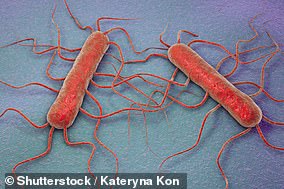Deadly listeria disease at Brisbane’s Mater Private Hospital sparks fears contaminated food could have spread it to even more – with cases reported in four states
The deadly listeria illness at Brisbane’s Mater Private Hospital is raising fears contaminated food could spread the disease to even more countries – with cases reported in four states
Contaminated food is believed to be the source of a listeria outbreak at a major Queensland hospital, with fears at least two other hospitals could be affected.
Queensland Health is investigating an outbreak at The Mater Private in Brisbane.
Two more unnamed hospitals in the Metro North Health district and the Sunshine Coast Hospital and Health Service district are also affected.
NSW and Victoria are also affected according to Queensland Chief Health Officer Dr John Gerrard.
“To date, nine cases have been reported in four states, all linked through genetic studies,” he said.
“Five cases were diagnosed in Queensland and four of those people live in Queensland.”
Brisbane’s Mater Private Hospital (pictured) is involved in a listeria outbreak also affecting NSW and Victoria
The cause of the outbreak is under investigation, with the bacteria Listeria monocytogenes commonly transmitted through food.
“The source of the infection is currently unknown as no single common food could be linked to all cases,” Dr Gerrard said.
The bacteria is common in nature and healthy people who ingest a small amount do not show any symptoms.
However, authorities are concerned about the outbreak in hospitals because high concentrations ingested by immunocompromised people and the elderly can result in invasive listeriosis, which can be fatal.
It is understood that the people involved in the outbreak are all over 40.
Infectious disease experts met with Mater staff this week and implemented a strategy to minimize the spread.
The federal government’s food contamination watchdog, OzFoodNet, is coordinating the national investigation and response.

